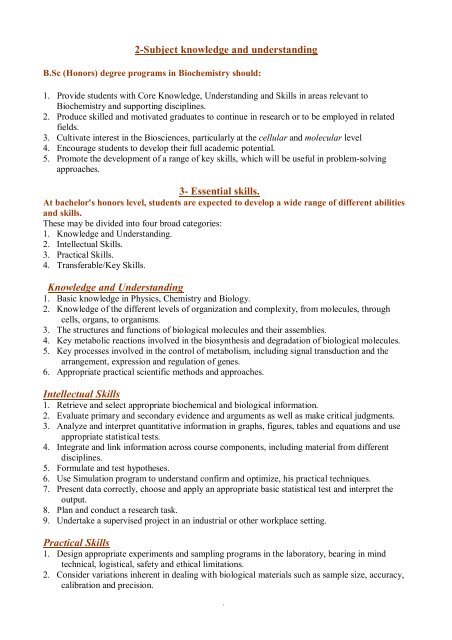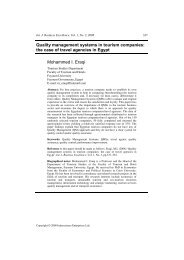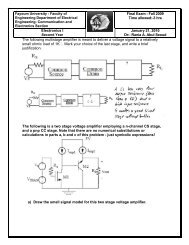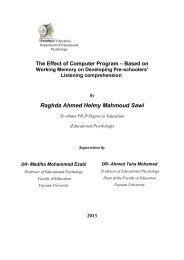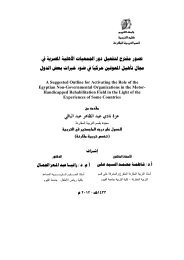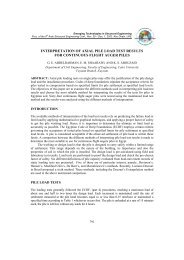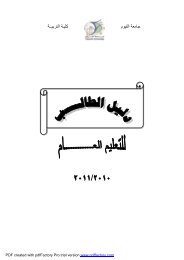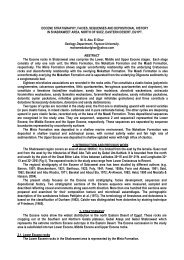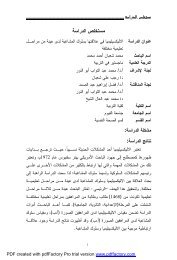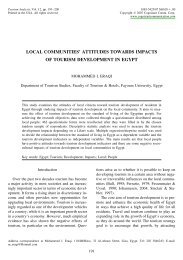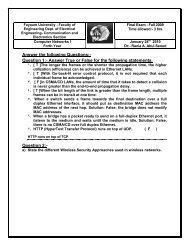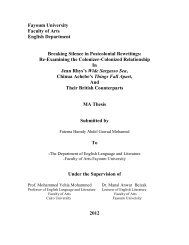National Academic Reference Standards for honors degree
National Academic Reference Standards for honors degree
National Academic Reference Standards for honors degree
You also want an ePaper? Increase the reach of your titles
YUMPU automatically turns print PDFs into web optimized ePapers that Google loves.
2-Subject knowledge and understanding<br />
B.Sc (Honors) <strong>degree</strong> programs in Biochemistry should:<br />
1. Provide students with Core Knowledge, Understanding and Skills in areas relevant to<br />
Biochemistry and supporting disciplines.<br />
2. Produce skilled and motivated graduates to continue in research or to be employed in related<br />
fields.<br />
3. Cultivate interest in the Biosciences, particularly at the cellular and molecular level<br />
4. Encourage students to develop their full academic potential.<br />
5. Promote the development of a range of key skills, which will be useful in problem-solving<br />
approaches.<br />
3- Essential skills.<br />
At bachelor's <strong>honors</strong> level, students are expected to develop a wide range of different abilities<br />
and skills.<br />
These may be divided into four broad categories:<br />
1. Knowledge and Understanding.<br />
2. Intellectual Skills.<br />
3. Practical Skills.<br />
4. Transferable/Key Skills.<br />
Knowledge and Understanding<br />
1. Basic knowledge in Physics, Chemistry and Biology.<br />
2. Knowledge of the different levels of organization and complexity, from molecules, through<br />
cells, organs, to organisms.<br />
3. The structures and functions of biological molecules and their assemblies.<br />
4. Key metabolic reactions involved in the biosynthesis and degradation of biological molecules.<br />
5. Key processes involved in the control of metabolism, including signal transduction and the<br />
arrangement, expression and regulation of genes.<br />
6. Appropriate practical scientific methods and approaches.<br />
Intellectual Skills<br />
1. Retrieve and select appropriate biochemical and biological in<strong>for</strong>mation.<br />
2. Evaluate primary and secondary evidence and arguments as well as make critical judgments.<br />
3. Analyze and interpret quantitative in<strong>for</strong>mation in graphs, figures, tables and equations and use<br />
appropriate statistical tests.<br />
4. Integrate and link in<strong>for</strong>mation across course components, including material from different<br />
disciplines.<br />
5. Formulate and test hypotheses.<br />
6. Use Simulation program to understand confirm and optimize, his practical techniques.<br />
7. Present data correctly, choose and apply an appropriate basic statistical test and interpret the<br />
output.<br />
8. Plan and conduct a research task.<br />
9. Undertake a supervised project in an industrial or other workplace setting.<br />
Practical Skills<br />
1. Design appropriate experiments and sampling programs in the laboratory, bearing in mind<br />
technical, logistical, safety and ethical limitations.<br />
2. Consider variations inherent in dealing with biological materials such as sample size, accuracy,<br />
calibration and precision.<br />
٣


